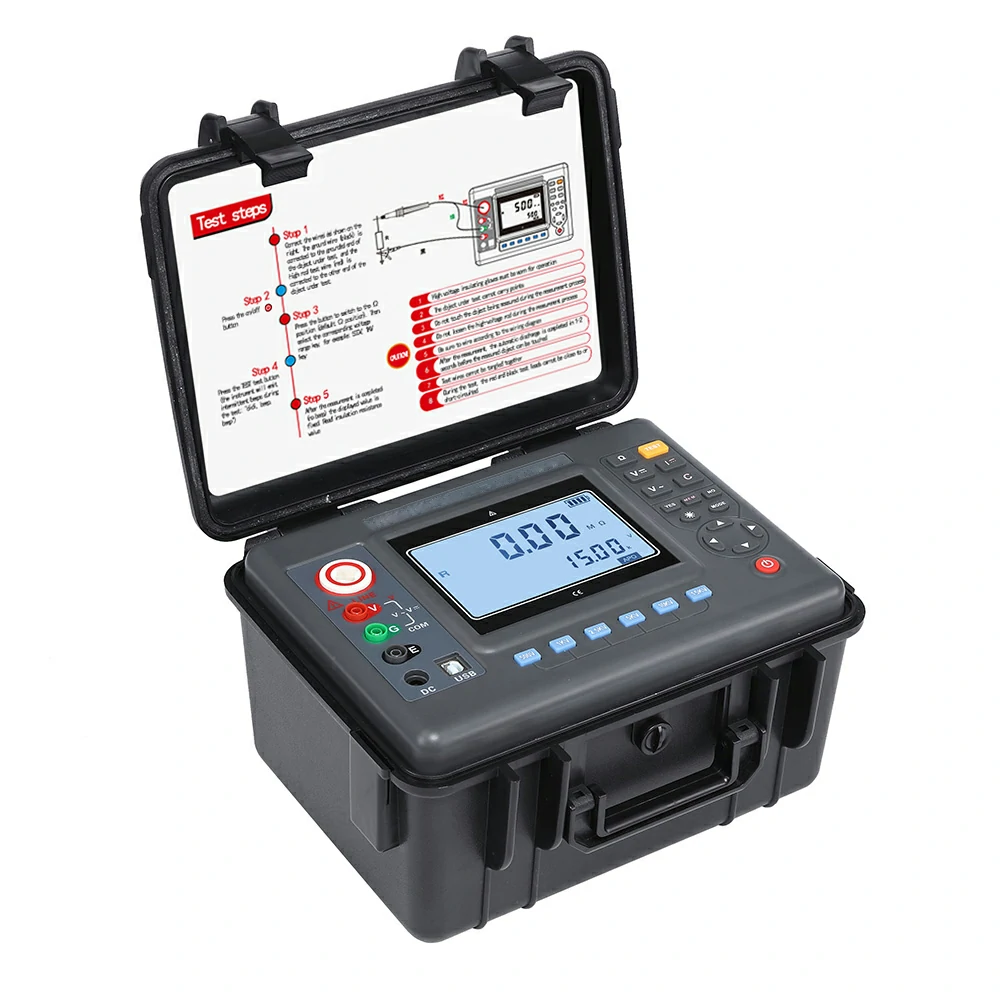Importance of Insulation Resistance Testing
Insulation resistance testing is crucial for maintaining the integrity of electrical installations and ensuring safe electrical operations. The primary purpose of this testing is to assess the quality and effectiveness of insulation materials used in electrical equipment, cables, and conductors. By measuring the insulation resistance, professionals can identify potential faults or weaknesses that may compromise the insulation’s ability to prevent electrical leakage, short circuits, or electrical shock hazards.
Timely insulation resistance testing helps detect early signs of insulation degradation, moisture ingress, or other insulation-related issues. By identifying these problems proactively, maintenance professionals can take corrective actions, such as repairs or replacements, to prevent costly equipment failures, downtime, or safety hazards.
Understanding the Megger Tester

The Megger tester as insulation resistance tester, often considered the go-to instrument for insulation resistance testing, is designed specifically for this purpose. It is a portable device that applies a high voltage which exactly match to High Voltage Insulation Resistance Tester, typically ranging from 500 to 1000 volts or higher, to the insulation of the component under test. The Megger tester measures the resulting current flowing through the insulation and calculates the insulation resistance.
Key features and capabilities of the Megger tester include:
a. High Voltage Generation: The Megger tester generates a controlled high voltage to stress the insulation. This voltage helps identify potential insulation weaknesses that may not be apparent under normal operating conditions.
b. Resistance Measurement: By measuring the current flowing through the insulation, the Megger tester calculates the insulation resistance. This resistance value is indicative of the insulation’s effectiveness in blocking electrical leakage.
c. Test Voltage Options: Megger testers offer various test voltage options, allowing professionals to select the appropriate voltage level based on the specific application and industry standards.
d. Accuracy and Precision: Megger testers are designed to provide accurate and reliable insulation resistance measurements. They have built-in safeguards to ensure precise readings and minimize external interference.
e. Digital Display and Data Logging: Modern Megger testers come equipped with digital displays that show real-time resistance readings. Some models also offer data logging capabilities, allowing professionals to record and analyze test results for future reference or comparative analysis.
Benefits of Megger Tester for Insulation Resistance Testing
Using a Megger tester for insulation resistance testing offers several advantages:
a. Enhanced Safety: Megger testers provide a controlled and isolated high voltage source, ensuring the safety of the testing personnel and preventing electrical shock hazards.
b. Early Fault Detection: Insulation resistance testing with a Megger tester helps identify insulation faults at an early stage, allowing timely corrective action to prevent equipment failure or safety risks.
c. Preventive Maintenance: Regular insulation resistance testing using a Megger tester enables proactive maintenance, reducing the chances of unexpected failures and minimizing downtime.
d. Efficient Troubleshooting: Megger testers assist in identifying the location and severity of insulation faults, helping professionals troubleshoot and pinpoint the areas that require attention.
e. Compliance with Standards: Insulation resistance testing with a Megger tester helps meet industry standards and regulatory requirements related to electrical safety and equipment maintenance.